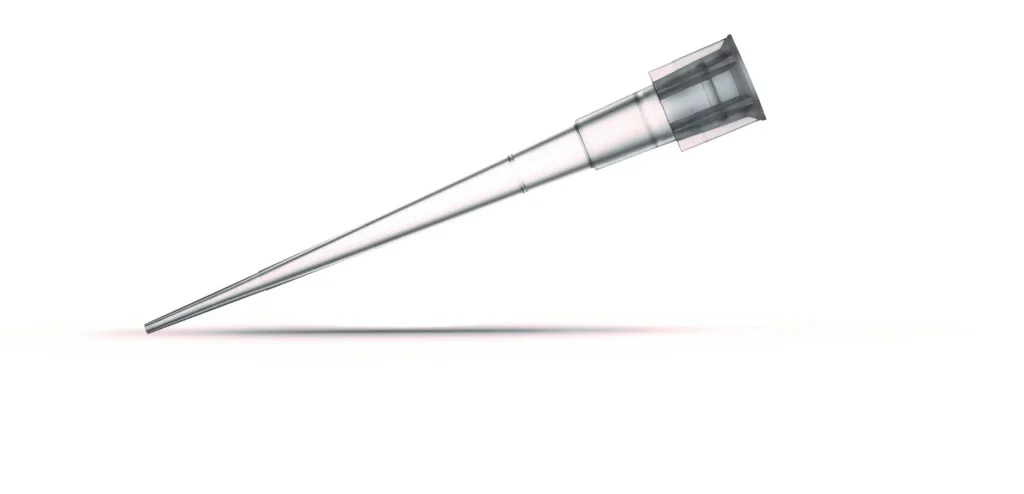The foundation of any successful scientific enquiry is predicated on the accuracy and precision of laboratory experiments. In the molecular biology and biochemical laboratory environment, this precision is often linked to the tools and equipment used. Among the essential tools in any lab are pipettes which, when partnered with high-quality filter tips, ensure the validity of results and integrity of the process.
What are Filter Tips and Why are They Essential?
Filter tips are specialised pipette tips that contain a filter barrier which prevents aerosols and fluids from contaminating the pipette barrel and cross-contaminating samples. Aerosols in particular can be a significant source of contamination, as they can carry minute particles from one sample to another, leading potentially to skewed results. The utilisation of filter tips is a crucial aspect of maintaining aseptic technique and avoiding the pitfalls of sample degradation or manipulation.
The Role of Filter Tips in Laboratory Precision
At the heart of laboratory precision are the protocols and equipment designed to eliminate variables and maintain conditions conducive to reproducibility. Filter tips play an integral role in these processes through their design and function. By providing a physical barrier, they secure the integrity of the samples and the accuracy of measurements, which is particularly critical in quantitative assays such as qPCR or when handling dangerous pathogens.
Features of High-Quality Filter Tips
Not all filter tips are created equal. High-quality filter tips possess certain features that set them apart from their lesser counterparts. For instance, they are often made from virgin polypropylene, which affords them a high level of chemical resistance and ensures that they do not interfere with biological samples. They may also be free from detectable DNA, DNase, RNase, endotoxins, and other contaminants that could influence experimental outcomes.
Moreover, the manufacturing process of such tips is also a critical factor; the filter tips need to be consistent in size and shape to provide repeatable results with every use. Ideally, they would be compatible with a range of pipettes, extending their utility across multiple procedures. The best filter tips come with a certification that attests to their sterility and purity.
The Impact of Filter Tips on Experimental Outcomes
The reliability of laboratory findings is notably dependent on the minutiae of experimental procedure. In cases of serial dilutions, cell culture inoculation, or the handling of precious reagents, the accuracy imparted by using dependable filter tips can be the difference between success and failure in experimental outcomes. Sub-par filter tips could lead to sample loss, contamination, or even damage to equipment.
Experimental consistency is another criterion notably linked to the quality of filter tips. Variations in the quality of tips can introduce discrepancies in volume delivery, leading to variable data outputs. Avoiding these inconsistencies is paramount in any lab intending to produce data that can stand up to scrutiny and peer review.
Choosing the Right Filter Tips for Your Lab
Selecting the right filter tips involves considering the specific requirements of your laboratory procedures. The capacity of the tips, the compatibility with existing pipettes, and the level of sterility required are all critical considerations. Potential users should also examine the certification of the tips, ensuring that they meet necessary industry standards and regulations for their intended use.
It is advisable for labs to look beyond cost and towards value – investing in premium filter tips can save resources in the long run by reducing the frequency of contaminated results and the consequent need to repeat experiments.
Cost-Effectiveness of Investing in Quality Filter Tips
While high-quality filter tips may come with a higher upfront cost, investing in them can be cost-effective over time. By ensuring accuracy and avoiding the need for costly repeats of experiments, they can save laboratories significant amounts of time and money. The longevity of pipettes is also protected by using quality filter tips, reducing the likelihood of expensive equipment repairs or replacements.
Additionally, the moral and scientific responsibility to produce reliable and reproducible data cannot be understated. The use of superior filter tips reflects a laboratory’s commitment to excellence and credibility in their scientific outputs, potentially influencing funding and publication opportunities.
Advancements in Filter Tip Technology
The scientific community continually benefits from innovations in laboratory technology, with improvements in filter tip design and manufacture being no exception. Advances have led to tips that offer reduced sample retention, increasing the efficiency and accuracy of sample transfer. Ergonomic designs also contribute to reduced risk of repetitive strain injuries for lab technicians who often conduct tedious and repetitive pipetting tasks.
The Future of Laboratory Precision
Looking ahead, as experiments become more sensitive and the demand for precision intensifies, the role of filter tips will only grow in importance. Manufacturers of filter tips are poised to address these advancements head-on, continually improving their products to cater for the evolving needs of the laboratory environment.
In conclusion, the presence of high-quality filter tips in the laboratory is not a luxurious add-on but a necessary investment for any facility committed to accuracy and reproducibility in scientific research. By understanding and utilizing these powerful laboratory tools, scientists and technicians can achieve higher standards in experimental precision, safeguarding the validity of their results and the integrity of their research.
Laboratory managers and procurement officers are encouraged to take the time to evaluate their choice in filter tips and consider the long-term benefits that these essential tools can bring to their laboratories’ operational effectiveness and research outcomes.

